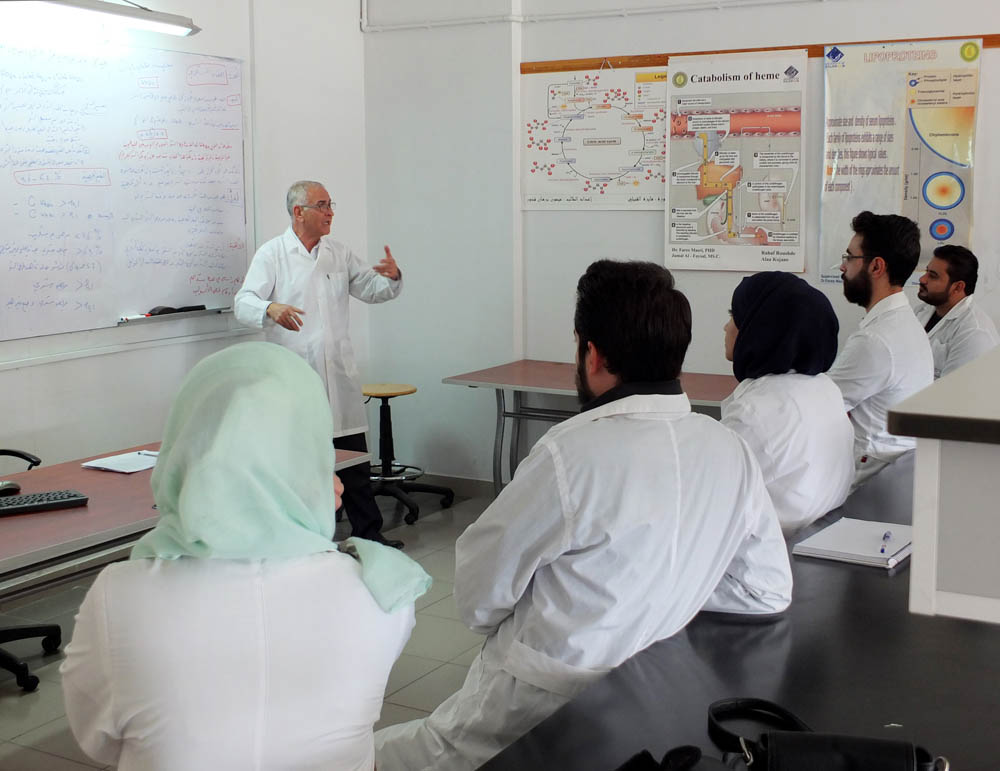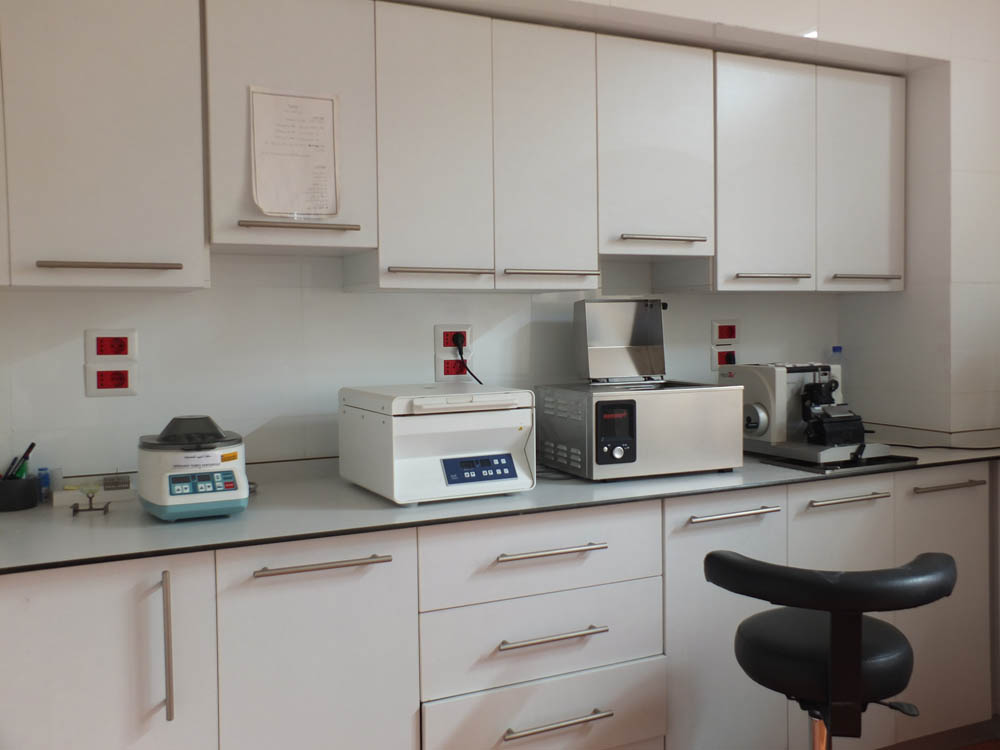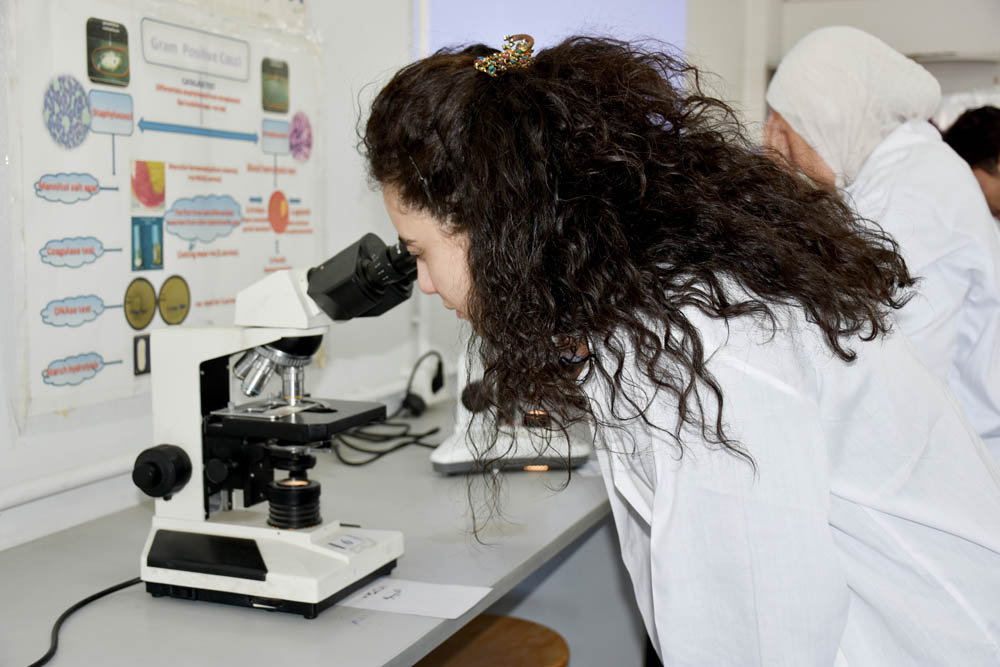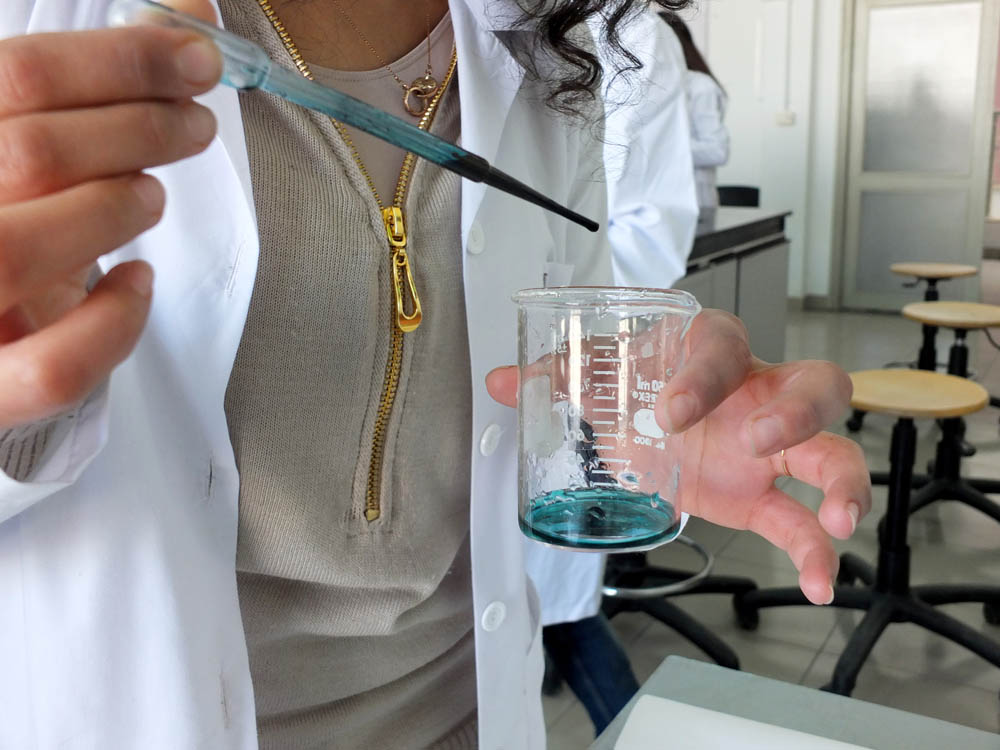Faculty of Pharmacy
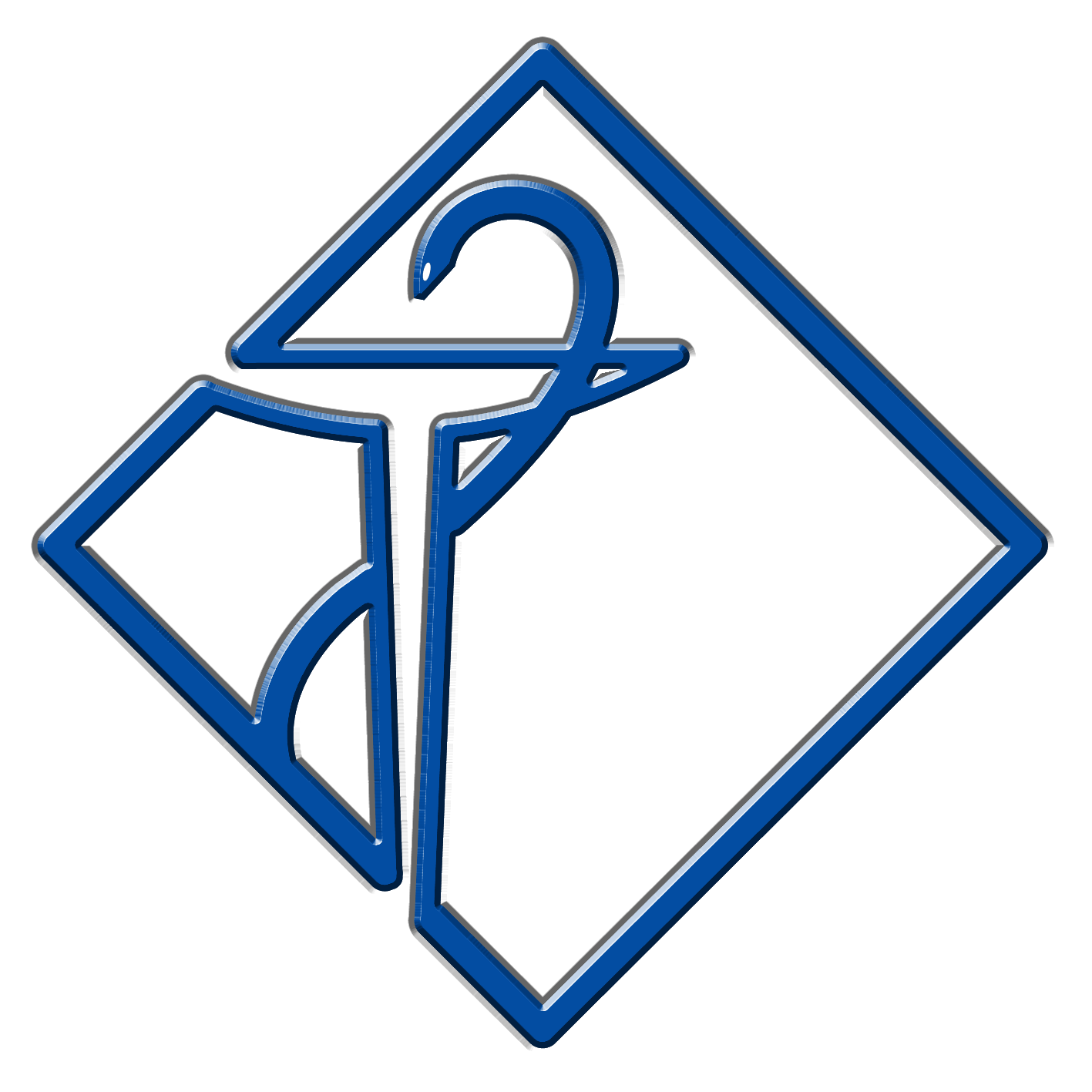
Opening Year
Current Students
Graduates’ Batch
Alumni
Dr. Sondos Yassin
(Dean of the Faculty)
The Faculty of Pharmacy at the University of Kalamoon was established in 2004 as the first private pharmacy faculty in our country. It was launched with a strong start, thanks to the founders who declared it to be the icon of the University of Kalamoon and the pride of its medical faculties, and they were right in what they said.
Cohorts of students have graduated from the faculty. They have been a badge of pride for our university by achieving high success rates, obtaining the first ranks in the unified national examination for pharmacy, being admitted to postgraduate studies inside and outside the country, occupying important positions in various sectors of pharmaceutical work, and achieving a high percentage of employers about their performance through the college’s communication with graduates and their employers to determine KPIS sensors.
Since its inception, the college has relied on study plans based on solid scientific foundations and an academic program that achieves national NARS standards and responds as much as possible to international standards, covering the knowledge areas in pharmaceutical sciences.
Believing in the importance of scientific research, the college was keen to focus on the graduation project course, which took a systematic dimension in terms of acquiring scientific and transferable experiences, as well as developing scientific writing skills by evaluating a graduation thesis in which 4-6 students participate on a specific scientific topic; to develop teamwork skills and defend this thesis before internal and external judging committees.
To support this trend, an incubating environment for scientific research is being created at the college through laboratories equipped with the latest laboratory equipment, in addition to introducing modern simulation programs in computer laboratories to support the practical aspects of some courses.
Emphasis has also been placed on the pharmaceutical training course, where students undergo a practical training program in pharmacies, laboratories and hospitals, consisting of 500 hours of training, in which the college contracts annually with the best pharmacists in various Syrian governorates to train its students with the application of an effective follow-up and monitoring system to achieve the desired goal. This was followed by the opening of the first virtual pharmacy in the country. Here we do not forget the role of pharmaceutical laboratories in training our students and receiving them; to familiarize them with the process of manufacturing medicine from the raw material to the final product, and their generous support for the virtual pharmacy and supplying it with free samples. The period of pharmaceutical training ends with the final internship exam for public and private pharmacies, as well as scientific and trade union organizations and bodies through joint cooperation agreements, which in many cases have been translated into executive agreements.
The Faculty of Pharmacy at the University of Kalamoon has also been holding scientific events, including two conferences and five scientific days. They covered various important and urgent scientific topics in the field of the profession.
The faculty also offers a number of scientific and cultural activities for its students (such as scientific competitions, poster competitions, the best pharmaceutical product competition, scientific trips, and cultural meetings)
We are sure that we have worked hard to provide our students and graduates with the necessary knowledge to help them enter the fields of work and scientific research. We are also sure that with the ethics of practicing the profession, they will play leading roles in serving the country and people, and will be an example of integrity and high ethics.
The Faculty Vision:
The faculty of Pharmacy aspires to achieve academic and applied excellence in the field of pharmaceutical sciences and allied medical sciences.
The Faculty Mission:
The College of Pharmacy at the University of Kalamoon is the first college of pharmacy in a private university in Syria
It works to prepare and qualify cadres in pharmaceutical specialties and professions capable of carrying out their duties and excel in serving the community, by applying effective and modern learning methods and developing the student’s personality through advanced educational programs to provide the current and future requirements of the pharmacy profession.
The Faculty Goals:
To achieve the vision and mission of the College of Pharmacy at the University of Kalamoon, the following goals have been set:
- Preparing and qualifying pharmacists in pharmaceutical specialties and professions and serving the community.
- Developing the competitiveness of graduates in the labor market and encouraging them to work in the pharmaceutical industry sector.
- Supporting and developing scientific research in the college and creating an enabling environment for the opening of postgraduate studies in pharmacy.
- Developing the scientific and professional level of the teaching, technical and administrative cadres in the college.
- Providing a favorable surrounding for students and educational and administrative staff in the college.
- Applying, evaluating and following up the implementation of quality standards and obtaining accreditation.
- Developing community service and environmental protection initiatives.
Achieving scientific and cultural cooperation between the college and various pharmacy colleges, research and scientific centers, and national, Arab and international health institutions.
Based on the proposal of the Faculty of Pharmacy Council, the Faculty of Pharmacy at the University of Kalamoon grants a bachelor’s degree in Pharmacy and Pharmaceutical Chemistry.
After a 5-year period of study, the student is required to pass 180 credit hours, in addition to 10 credit hours in the concomitant course equivalent to 500 hours of practical practice in pharmacies, medical laboratories and pharmaceutical laboratories to obtain a license in the required specialization.
The college’s curriculum covers the following departments:
- Department of Pharmaceutics and Pharmaceutical Technology.
- Department of Biochemistry and Microbiology.
- Department of Pharmaceuticals and Toxicology.
- Department of Pharmaceutical Chemistry and Pharmaceutical Control.
- Department of Drugs and Natural Products.
- Department of Analytical and Food Chemistry.
Academic Staff Members |
||

– |

– |

– |

– |

– |

– |

– |

– |

– |

– |

– |

– |

– |

– |

– |

– |
||
Technical Staff Members |
||

– |

– |

– |

– |

– |

– |

– |

– |

– |

– |

– |

– |

– |

– |

– |

– |

– |

– |

– |

– |

– |

– |

– |

– |

– |

– |

– |

– |

– |

– |

– |

– |

– |

– |

– |

– |
– Pharmacokinetics Laboratory.
– Organic Chemistry and Drug Chemistry Laboratory.
– Food Chemistry Laboratory.
– Automated Analysis and Physical Chemistry Laboratory.
– Analytical Chemistry Laboratory.
– Toxicology Laboratory.
– Pharmacology Laboratory.
– Biochemistry Laboratory.
– Clinical Biochemistry Laboratory.
– Pharmaceutical Laboratory.
– Industrial Pharmacy and Pharmaceutical Technology Laboratory.
– Qualitative Devices Laboratory.
– Microbiology and Microbial Pharmacology Laboratory.
– Pharmaceutical Chemistry Laboratory.
– Pharmaceutical Quality and Control Laboratory.

